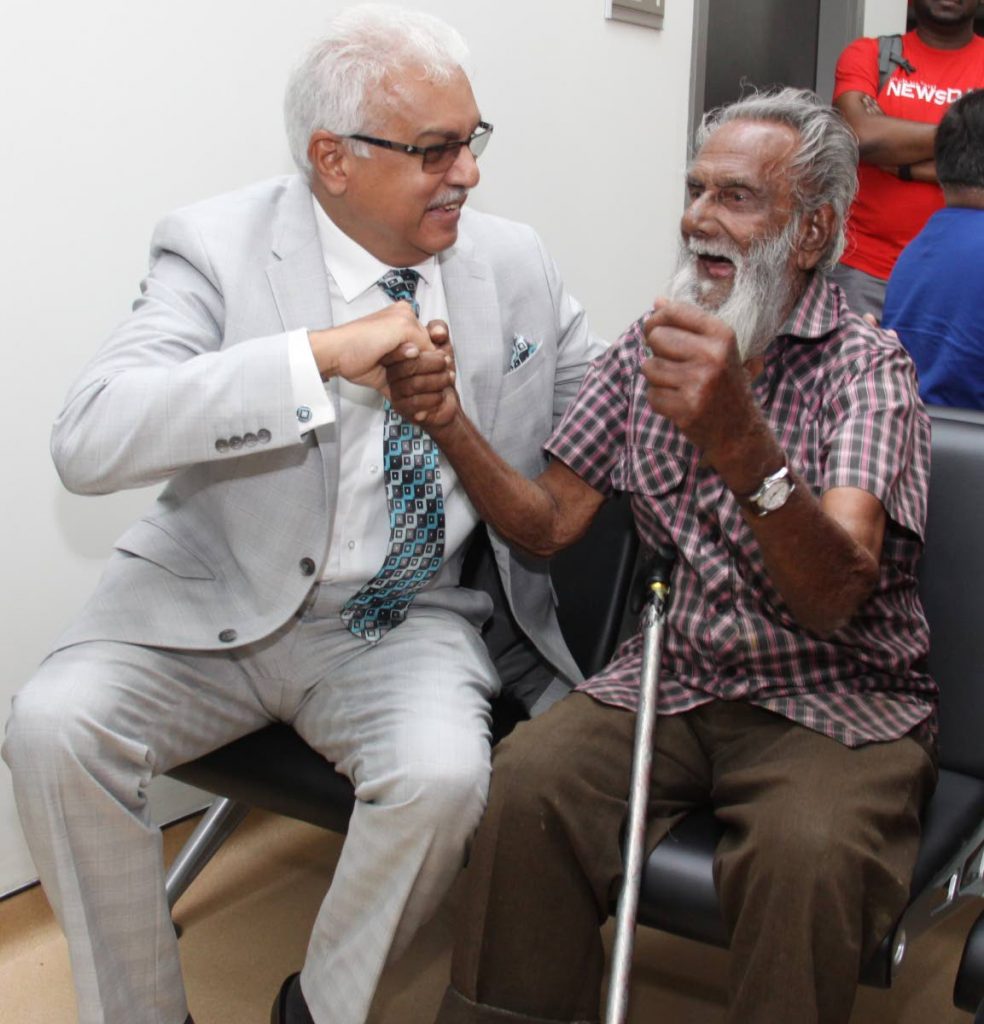High risk for swine flu

Health care workers and pregnant women are among citizens who have been most negligent in getting vaccinated against the H1N1 virus, or swine flu, Health Minister Terrence Deyalsingh said yesterday.
He said so while delivering the feature address at the formal opening of the $17 million Sangre Grande Enhanced Health Centre, Sangre Grande.
“The two biggest sub-populations that need the flu vaccination are health care workers because you are on the frontline when people have the influenza virus. You are on the frontline. You are most at risk,” he said.
“But, traditionally....one of the biggest groups that have a resistance to taking the flu vaccination is health care workers. You would think that they would be the first to line up to get it ”
Deyalsingh said his ministry also had problems trying to convince pregnant women to take the vaccine.
“We have been going around to our anti-natal clinics and we literally have to beg mothers to take their flu vaccination. I mean, we cannot force anybody. But we have to beg, cajole people to take their flu vaccination.” The minister, who again confirmed there have been three H1N1 deaths to date, again urged citizens to be vaccinated. In Parliament, on Friday, Deyalsingh said there were 17 H1N1 cases, two of influenza H3N2, and for influenza B there were two.
Addressing an audience, which included MPs Glenda Jennings-Smith, Christine Newallo-Hosein, Rushton Paray and chairman of the Sangre Grande Regional Corporation Martin Terry Rondon, Deyalsingh complained citizens were still too apathetic.
“That is why we launched the flu season vaccination programme in November. I urged people to go out and get vaccinated. Do not wait until you have deaths.”
Deyalsingh also urged health care officials across the country and especially those responsible for far-flung communities to develop strategies to ensure people get tested.
“In Eastern RHA, you have a particular challenge because there are isolated villages,” he said, noting that residents of Mafeking and Kernahan recently received vaccines.
Managed by the National Insurance Property Development Company (NIPDEC), the Ojoe Road facility was built by Adams Construction. It began in May 2014 and was handed over on August 2018.
It offers primary care services to an estimated 35,000 residents of Sangre Grande and its environs.
These include breast-feeding counselling, ultrasound services, chronic disease and family planning.
Saying non-communicable diseases (NCDs), including diabetes and hypertension, also remained a challenge throughout the country, Deyalsingh urged the ERHA’s medical officials to ensure the poor and disadvantaged, specifically, receive quality health care.
Deyalsingh said when it comes to health, there were two types of people: those with health-seeking behaviours and those who did not see health as a major priority because they were too preoccupied with survival.
“They are more concerned with ‘How am I putting food on the table today?’ People, who, because of circumstance, health seeking behaviour is very low on their priorities.”
He said: “Those are the people we have to reach, those are the people who carry the burden of NCDs. It is called the social determinants of health. Those are the people who use these facilities more than people who don’t have to worry about daily existence.”
Deyalsingh said in this current flu season, “these are the people we have to go out to and reach because they are not going to come to us to seek the vaccine. It does not occur to them the vaccination against the influenza virus is a serious thing.”
In his remarks, Ronald Tsoi-a-Fatt, CEO, Eastern Regional Health Authority (ERHA), said staff had been exposed to a “strong” orientation programme “as we set the table for quality standards that will characterise the services at this facility.”
He said during the four-month settling period, the facility has had 6,970 health centre visits, 285 electrocardiograms, 1,138 ultrasounds, 2,533 X-rays, 927 ophthalmology visits.
Tsoi-a-Fatt said there also were 9, 408 visits in terms of walk-in general practice services.
ERHA chairman Esme Rollins-Charles and Dr Allana Best, County Medical Officer of Health, St Andrew/St David, also spoke.


Comments
"High risk for swine flu"